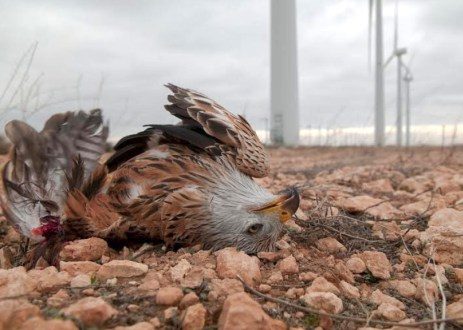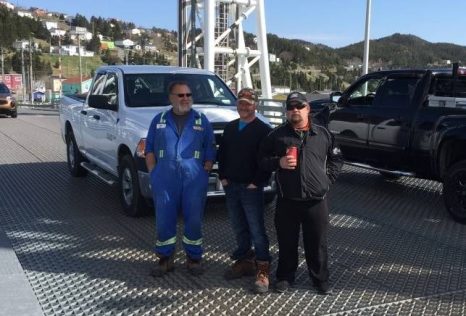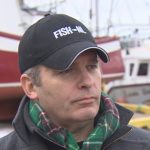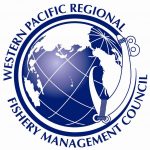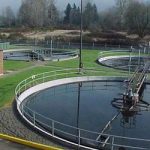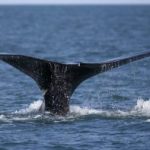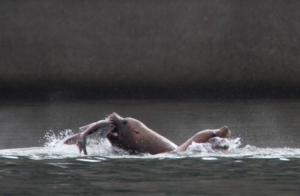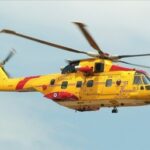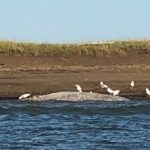Monthly Archives: May 2018
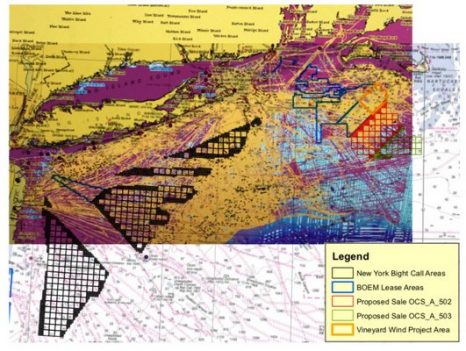
A Divided Community Speaks at Wind Farm Hearing
East Hampton residents crystalized their hopes and fears about Deepwater Wind’s proposed offshore wind farm 36 miles off the coast of Montauk in a three-hour-long public hearing at LTV’s Wainscott studio May 17. Their views highlighted a deepening divide within the community, with many saying the project is a necessary tool in combatting catastrophic climate change, while others worried that the price of the power from the project has not been disclosed, and many said that Rhode Island fishermen whose work was impacted by the company’s Block Island wind farm weren’t fully compensated for their losses, and were asked to sign non-disclosure agreements when they settled their case with the wind power company. >click to read<08:52
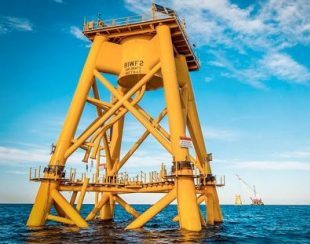
Offshore wind rush is irresponsible, Turbine farms threaten the future of fishing
In an April opinion piece, Interior Secretary Ryan Zinke wrote that “affordable, reliable, and abundant American energy drives domestic jobs and prosperity.” If by “drives domestic jobs and prosperity” Zinke meant “threatens the very existence of New England fishermen,” then the East Farm Commercial Fisheries Center of Rhode Island (which represents Rhode Island commercial fishermen) would agree.,,, The rush to approve and build these massive projects is irresponsible. The survival of the fishing industry is now dependent on a review process that has been kicked into high gear and is lacking the research and data necessary to make informed and balanced decisions. For example, in its haste to approve these massive projects, the Bureau of Ocean Energy Management significantly underestimated the intensity of the fishing effort taking place in the Vineyard Wind project area and seriously undervalued the fisheries, especially the squid fishery. As a result, Vineyard Wind plans to construct its project in a prime squid fishing area. >click to read<08:01
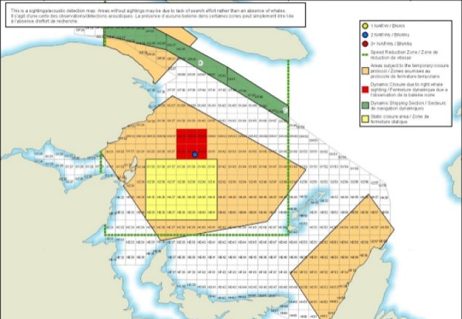
Gulf of St. Lawrence – 6 fishing areas closing after 2 right whales spotted
The Department of Fisheries and Oceans is temporarily closing several fishing areas in an effort to protect endangered right whales. In a tweet, Fisheries Minister Dominic LeBlanc said two North Atlantic right whales were spotted in the Gulf of St. Lawrence off the coast of New Brunswick. The closures will take effect May 22 at 4 p.m. and all gear is expected to be removed from the water by that time. The closures are for the following fisheries: snow crab, toad crab, rock crab, lobster and whelk. The closures will also apply to winter flounder and Atlantic halibut, except where gear is not left unattended. >click to read<07:25
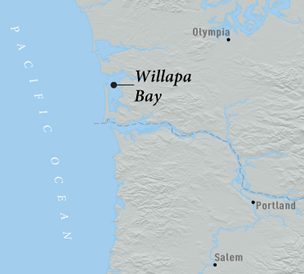
43-foot vessel missing in Willapa Bay with one aboard; search suspended Sunday
At 12:33 p.m. Sunday the U.S. Coast Guard suspended its search for a Long Beach Peninsula man whose commercial crabbing vessel sank Saturday in Willapa Bay. “All searches for mariner yielded negative results,” the Coast Guard said on its Twitter feed. “Search has been suspended and efforts are switching to vessel salvage/fuel recovery.” Coast Guard crews responded Sunday morning to a diesel-oil sheen and debris field in Willapa Bay after searching throughout the night for the 43-foot vessel Kelli J and its local skipper, Kevin Soule, who is believed to have been pulling crab pots at the time of the accident. Port of Peninsula Manager Jay Personius confirmed Sunday afternoon that Soule was at the helm Sunday and is thought to have been the only person on board. >click to read<20:39

Andrew Cuomo’s wind farm won’t fly without fracking
New York’s Gov. Andrew Cuomo led the cheer squad last month when the Interior Department announced it would begin allowing offshore wind turbines to be built in the shallow waters between New Jersey and Long Island. Mr. Cuomo had recently announced a $6 billion plan to build 2,400 megawatts of offshore wind capacity by 2030, with the costs passed on to bill payers. But though Mr. Cuomo portrays himself as a champion of cutting greenhouse-gas emissions, his simultaneous opposition to a New York City-area nuclear plant exposes his wind plan as a mere play for progressive prestige. Mr. Cuomo isn’t the only Northeastern governor with windy ambitions. Massachusetts’ Charlie Baker signed a bill in 2016 committing his state to develop 1,600 megawatts of offshore wind power by 2027, and New Jersey’s Phil Murphy decreed in January that the Garden State would aim for 3,500 megawatts of offshore wind power by 2030. >click to read<
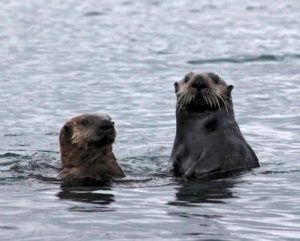
Alaska Dive Fishermen Plead for Relief from Sea Otters
Phil Doherty, head of the Southeast Alaska Regional Dive Fisheries Association, is working to save the livelihood of 200 southeast Alaska fishermen and a $10 million industry but faces an uphill struggle against an opponent that looks like a cuddly plush toy. Fishermen have watched their harvest shrink as sea otters spread and colonize, Doherty said. Divers once annually harvested 6 million pounds (2.7 million kilograms) of red sea urchins. The recent quota has been less than 1 million pounds (454,000 kilograms). “We’ve seen a multimillion-dollar fishery in sea urchins pretty much go away,” he said. >click to read<12:46
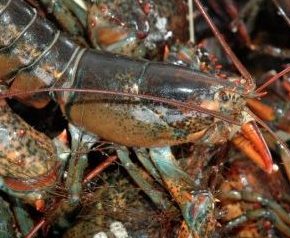
Cape Breton – Lobster prices drop for area fishermen
Cape Breton fishermen might be feeling the pinch of a recent drop in the price of lobster. The season for clawed crustaceans opened May 15 in the island’s largest lobster fishing area, which spans from Bay St. Lawrence to Fourchu. Marlene Brogan, manager of Ballast Ground Fisheries, said when the season opened the price of landed lobster was $6.50. On Friday, it dropped for some fishermen to $6, with the retail price coming in at $9.50 for live lobsters. >click to read<12:02
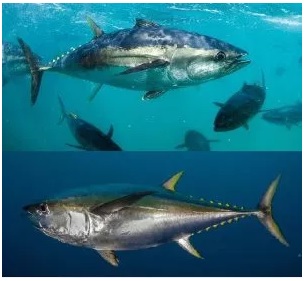
The difference between Blue and Yellow (Fin Tuna)
From Humdrum to Gourmet: There was a time when eating tuna fish was not considered a gourmet experience. Canned tuna was a standard luncheon selection for school children and weekend casseroles. Demand for tuna was small: In 1950, the worldwide catch totaled 660,000 tons (approximately); today the desire has increased geometrically, and the world catch recently reached an excess of 7 million tons. From Trash to Treasure In the 1970s, Bluefin tuna was considered trash fish. It was used in cat food and sport fishermen paid to have it hauled off their boats. In the mid-1990s the reputation for Bluefin tuna in Japan was so bad that it was referred to as neko-matagi, food too low for even a cat to eat. Today it is the most expensive fish in the sea. >click to read<09:34

Coast Guard terminates fishing vessel voyage for multiple safety violations near Dutch Harbor, Alaska
The crew of the Coast Guard Cutter Mellon terminated the voyage of the fishing vessel Nushagak Spirit near Dutch Harbor after discovering several safety issues and environmental concerns on board the vessel Monday. The crew of the Mellon conducted the boarding of the Nushagak Spirit three nautical miles east of Umnak Island where they discovered one fishing violation, 14 safety violations and the improper discharge of bilge water. Specifically, the vessel’s master admitted to pumping water from the bilge over the side of the vessel, a violation of the Clean Water Act. >click to read< 07:46

Coast Guard says Maine lobsterman found dead in Jericho Bay
The U.S. Coast Guard says a lobsterman has died while fishing near Marshall Island in Jericho Bay off Stonington. The Portland Press Herald reports the body of 60-year-old Wayne “Butch” Ciomei was found in the water wrapped in a fishing line. His 36-foot lobster boat, the Chelsea Lynn, was aground and running. Ciomei was reported missing by his son at about 4:30 p.m. Friday. Coast Guard public affairs officer Chellsey Phillips says a call for help was sent to other boaters and a 47-foot rescue boat was sent to the scene. Ciomei was found by his son at about 5:30 p.m. >link<14:05
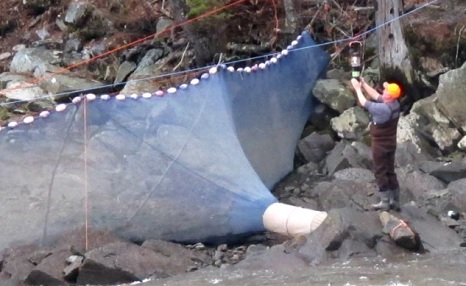
With 3 weeks to go in season, Maine’s baby eel harvest tops $20M
The value of landings so far in Maine’s 2018 baby eel fishing season have topped $20 million, the fishery’s highest annual value since the state adopted a statewide catch limit in 2014. Record prices this season of around $2,500 per pound for baby eels, also known as elvers, already have made the 2018 season the third-most valuable ever in Maine. Over the past four years, the highest annual landings total for the state’s baby eel fishery, which lasts from late March through early June, is $13.4 million in 2016. According to Maine Department of Marine Resources, as of Wednesday evening fishermen had caught 8,416 pounds, or 87 percent of Maine’s annual catch limit of 9,688 pounds. >click to read<12:44
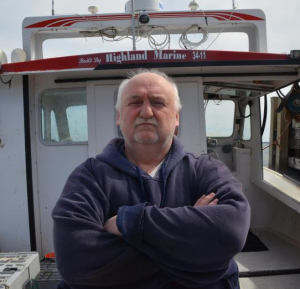
Turf War: Cooler heads need to prevail in Lobster disputes
One thing’s for certain — things need to calm down, and soon, in an escalating dispute between two area families that’s already resulted in charges being laid for assault causing bodily harm, mischief causing danger to life (after a ramming at sea) and uttering threats. There have also been allegations of an attempted ramming and anonymous telephoned death threats. A DFO vessel and the coast guard were off Ecum Secum on Thursday in response to “civil disobedience and local unrest,” a DFO spokesman said. No trouble was reported that day. >click to read<12:01

Ryan Cleary: What makes an inshore fish harvester?
I write this letter to inform your readers why it’s important to define an inshore fish harvester for purposes of a vote by the Labour Relations Board to ultimately decide which union should represent them. Here are three, real-life examples: 1) Two men who hold commercial fishing licenses are on the provincial government’s “sunshine list” as having made more than $100,000 in base salary/overtime in 2016 (one alone made more than $130,000), should they also be eligible to vote? 2) A teenager worked aboard his grandfather’s boat a couple of summer’s ago to help him out, and had a fish sale put in his name, with dues automatically remitted to the FFAW/Unifor. Should he be given a vote? 3) A man works aboard a fishing boat for a trip or two a couple of summers ago, never to set foot on a boat again. Should he be entitled to a ballot? >click to read<10:41 
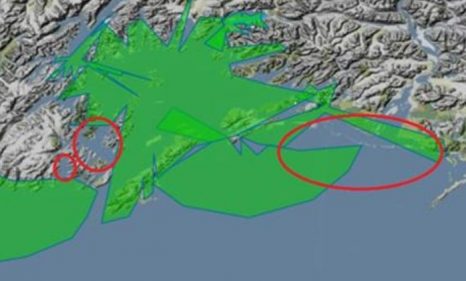
Boats and ships near Prince William Sound, the Coast Guard can’t hear you
If you’re on the waters of Prince William Sound, you’ll have to be extra cautious. That’s because if you run into trouble, depending on where you are, the Coast Guard says they may not hear your distress signal. The Coast Guard announced Friday afternoon that it can’t hear distress VHF transmissions until vessels reach Port Wells in Prince William Sound, specifically on VHF-FM channel 16. If you are in the following areas the Coast Guard won’t be able to hear a distress signal on channel 16: >click to read<09:28
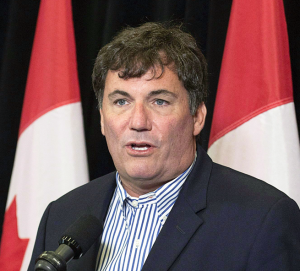
Ethics commissioner to investigate LeBlanc for lucrative Arctic surf clams deal
Federal ethics commissioner Mario Dion has launched an investigation of Fisheries Minister Dominic LeBlanc’s decision to award a lucrative licence for the Arctic surf clam fishery to a group that has ties to his wife’s family and the federal Liberal party — a reversal of a decision the commissioner made earlier this month to pass on such a probe, CBC News has learned. Conservative B.C. MP Todd Doherty, the fisheries critic, alleges the government’s effort to expand ownership in the fishery — by clawing back part of an existing quota held by Clearwater Foods and handing it to a group with Indigenous representation — violates the Conflict of Interest Act because it enriches the brother of a sitting Liberal MP, a former Liberal MP, and a cousin of LeBlanc’s wife. Doherty asked Dion to initiate this examination. >click to read<18:00
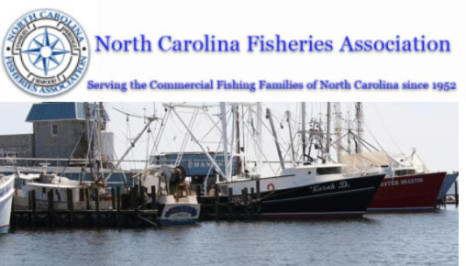
North Carolina Fisheries Association Weekly Update for May 18, 2018
>Click here to read the Weekly Update<, to read all the updates >Click here<, for older updates listed as NCFA >click here<14:13
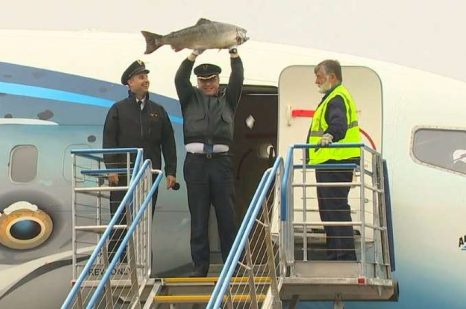
It’s here! First batch of Copper River Salmon arrives in Seattle
It’s that time of year again when Copper River salmon arrives in Seattle! More than 16,000 pounds of the tasty fish arrived at Sea-Tac Airport early Friday morning, with the first fish triumphantly raised above the flight captain’s hands upon arrival. Three more Alaska Airlines flights were inbound from Cordova, Alaska Friday, delivering an additional 48,000 pounds of salmon to the market, where it will then be delivered to restaurants and grocery stores across the country. >click to read<13:19
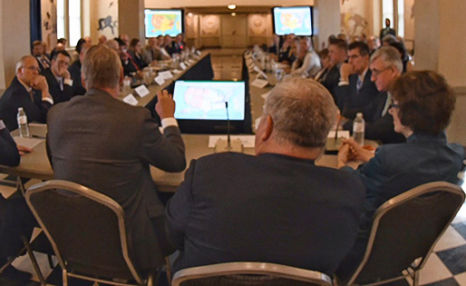
Zinke tells greens he’ll make ‘grand pivot’ to conservation
Interior Secretary Ryan Zinke yesterday huddled with more than two dozen conservation group leaders, including some of his staunchest critics, in his latest bid to generate both ideas and support for his ambitious departmental reorganization plans. He got an earful, and may have gained some goodwill. During a get-together at Interior headquarters that lasted nearly two hours, the conservationists and sportsmen started talking reorganization and branched out from there. >click to read<10:35
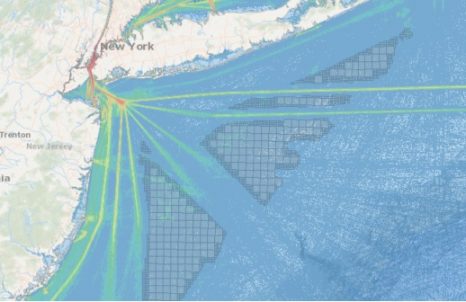
New York Bight – Interactive map shows where maritime industries, offshore wind could overlap
A new interactive map showing potential offshore wind energy areas in the New York Bight is now online to help mariners assess the potential impacts on their livelihoods, as federal officials gather information and comments this month. The Mid-Atlantic Regional Ocean Council (MARCO), an ocean planning partnership of state governments, posted the mapping tool Thursday. The base map shows the New York Bight “call area” where the federal Bureau of Ocean Energy Management is considering the possibility of offering future wind energy leases. (its bigger than Long Island) >click to read<
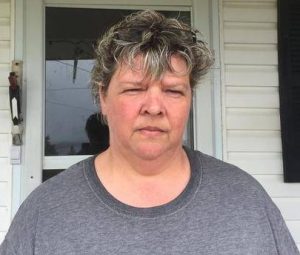
Coast guard, DFO on scene after lobster boat ramming off Ecum Secum
Its hull repaired from the damage sustained when it was rammed by a rival fishing crew, the Joint Account floated at one of Ecum Secum’s wharves on Thursday. According to its owner, Tanya Chambers, each captain she has tried to hire over the past two days to fish her licence has backed out. “I’ve had three people say they were willing to take my vessel and be its sub-operator,” said Chambers. “They have all got numerous threatening phone calls that if they take my vessel or talk to Austin (Tanya’s husband) or Terrence (Tanya’s son), they will be killed.”>click to read<09:04
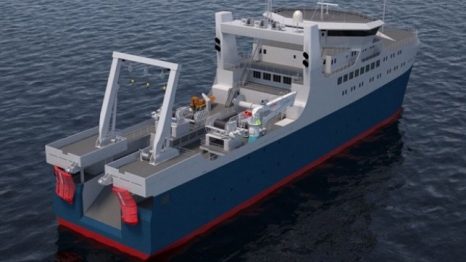
Rethinking the Ocean Factory Trawler
An entirely new design for the ocean factory trawler segment has been released by KNUD E. HANSENs Faroe Islands design team. From stem to stern this design redefines the classic trawler layout which has remained more or less unchanged for decades. The designers state: “The aim of this design is to set new standards for the next generation of ocean factory trawlers, seeking innovation in all solutions and adaption of new technologies to the long proven concept of stern trawlers”. >click to read<21:21
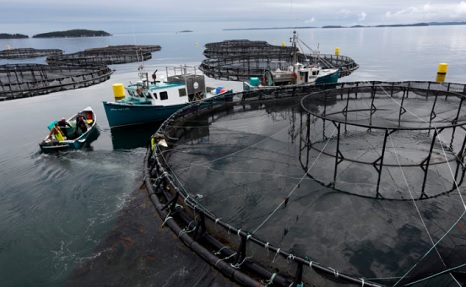
Canadian salmon firm admits using lobster-killing pesticide near Maine border
For the second time in five years, a Canadian salmon aquaculture firm has admitted in a New Brunswick courtroom to illegally using a pesticide known to kill lobsters for treating salmon off an island that abuts the Maine border. According to a CBC report, Northern Harvest Sea Farms admitted Tuesday to knowingly using the pesticide Salmosan 50 WP, without getting prior approval from the province, in an attempt to combat a sea lice outbreak at a salmon farm off Head Harbour on Campobello Island. Campobello Island is connected to the Maine town of Lubec via the Roosevelt International Bridge. >click to read<19:51
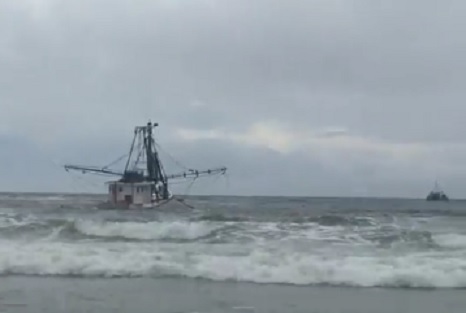
F/V Big Earl – Shrimp boat on Holden Beach finally back in the ocean
A shrimp boat that called the Holden Beach shoreline home for the past week is free. With the help of an excavator and high tide, Big Earl was dislodged from the beach Thursday morning and slowly made its way out into the ocean. “It was a miracle, like a baby giraffe being born, I was like come on Earl, go go go, don’t let the lines break,” said Sheila King, a vacationer who has been watching the beach boat for a week. (the people really rallied behind the fisherman, and I would say Big Earl is now an Ambassador.) Video, >click to read<19:06
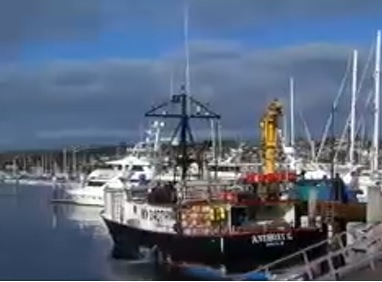
20K-Pound Fresh Fish Catch Helps San Diego Maritime Industry
Thousands of pounds of fish were offloaded Thursday in Point Loma, an occurrence that happens a few times a month in San Diego but is part of an evolving maritime industry. The Port of San Diego is highlighting the commercial fishing industry for “Maritime Month.” Many of the fishermen who work in San Diego have been a part of the local fishing industry for generations and spend weeks at a time at sea. On Thursday, four of those fishermen aboard the boat “Anthony G” used forklifts to unload about 20-thousand pounds of swordfish, tuna, manchong and other fresh catches at Driscoll’s Wharf in Point Loma. Video, >click to read<16:47
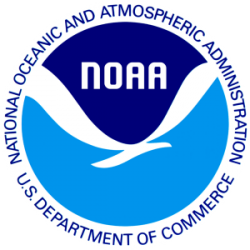
2017 Report to Congress on the Status of U.S. Fisheries
NOAA Fisheries NMFS is pleased to present the 2017 Report to Congress on the Status of U.S. Fisheries managed under the science-based framework established by the Magnuson-Stevens Fishery Conservation and Management Act (MSA). The 2017 report highlights the work toward the goal of maximizing fishing opportunities while ensuring the sustainability of fisheries and fishing communities. Due to the combined efforts of NOAA Fisheries, the eight regional fishery management councils, and other partners, three previously overfished stocks were rebuilt and the number of stocks listed as overfished is at a new all-time low. >click to read<16:04
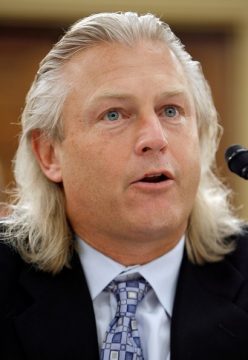
Tuna Industry Faces a Price-Fixing Scandal as Bumble Bee CEO Faces Criminal Charges
Price-fixing allegations have rocked the food world for the second time this year, as the CEO of Bumble Bee Foods is facing criminal charges for allegedly working to eliminate competition in the packaged seafood industry. Christopher Lischewski has been charged with one count of price fixing. That follows earlier similar charges against three StarKist tuna executives. One, who served as senior vice president for sales, pleaded guilty last year. Two other Bumble Bee executives have already pleaded guilty to price-fixing, and the company itself agreed to pay a $25 million fine for the same offense last year. >click to read<14:27

FISH-NL Launches fundraiser to help fund the conclusion of the breakaway union’s drive for certification
The Federation of Independent Sea Harvesters of Newfoundland and Labrador (FISH-NL) has launched a second Go Fund Me Campaign to raise $75,000 to help fund the conclusion of the breakaway union’s drive for certification. “We’re almost there,” says Ryan Cleary, President of FISH-NL. “It’s been16 long, hard months since FISH-NL submitted our application for certification and the Labour Relations Board is closer than ever to calling a vote for inshore harvesters to decide their union fate. We need this help to push us over the top.” It’s not just inshore harvesters who are urged to contribute to the cause, but people everywhere who are concerned with labour rights. >click to read< >click for fundraiser page<13:19

Judge denies bid for temporary halt to lobstering in Massachusetts
A federal judge has declined to issue a temporary restraining order to temporarily stop commercial lobster pot fishing in Massachusetts costal waters to protect North Atlantic right whales. The emergency motion seeking the order, filed May 4 by marine animal conservationist Richard Maximum Strahan, named the state Executive Office of Energy and Environmental Affairs and the Massachusetts Lobstermen’s Association as defendants, although Strahan’s broader lawsuit, filed Feb. 28, includes federal agencies as well. >click to read<11:58






